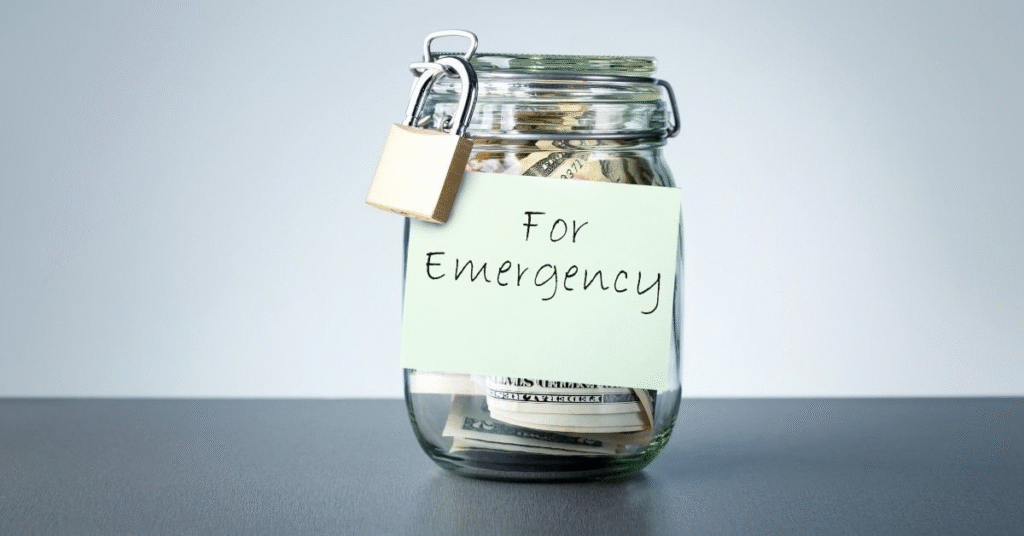By Friday evening, a young teacher found herself wondering why her wallet always seemed emptier than it should be. A coffee here, a snack there, a quick “I deserve this” purchase, and it all added up until she was left scratching her head.
Learning how to build a weekly budget became her lifeline, giving her back clarity when money felt like it was slipping through the cracks.
Keep reading; you might see yourself in her story.
How to Build a Weekly Budget, Step by Step
The first move in figuring out how to build a weekly budget is simple: know exactly where your money is going. Write down what you earn, then break it down by week.

Compare that to the non-negotiables, such as rent, groceries, and transportation. Whatever’s left can be divided between savings, fun money, and a small emergency fund.
A weekly expenses tracker, whether an app or a scribbled notebook, can spotlight patterns and show you where little leaks are draining your cash.
Why Bother With a Budget Anyway?
Here’s the thing: budgets aren’t just about money; they’re about peace of mind. Without a personal finance budget, even the healthiest paycheck can evaporate like mist on a hot morning.
Every single expense, from that morning latte to a random midnight snack, should be written down.
So you can think of a budget as a map, not a cage. It guides you while letting you set smart spending limits.
Smart Budget Hacks That Actually Work
Budgeting has a bad rep. It sounds like rules, restrictions, and zero fun. But here’s the twist: a few smart budget hacks can feel empowering.
Try envelope cash for groceries, set your savings to auto-transfer before you even see the money, or let your bank ping you when you’re close to overspending. These budgeting tips help you save money weekly without sucking the joy out of life.
Use Weekly Expenses Tracker to Stay Accountable
Every single expense, from that morning latte to a random midnight snack, should be written down. That’s what a weekly expenses tracker does. It’s not about guilt; it’s about awareness.

Patterns pop up fast—you’ll realize you’re spending more on food delivery than you thought, or that impulse buys are eating into your savings.
Easy Adjustments That Save You Money Weekly
Financial wins don’t usually come from big, dramatic changes. They come from small tweaks repeated over time. Cook dinner at home a few nights, cancel a subscription you forgot existed, and buy household basics in bulk.
Here’s a common reason budgets fail: they’re too strict.
And here’s a golden rule: treat savings like rent—non-negotiable. Pay yourself first, then let the rest fall into place. It’s a money management tip that never goes out of style.
Spending Limits Without the Handcuffs
Think of spending limits as bumpers on a bowling lane. They keep your money rolling in the right direction without killing the fun.
If you set aside cash for dining out or clothes, you can enjoy guilt-free splurges until the limit’s up. After that, it’s a hard stop until next week. It’s not about cutting out what you love; it’s about enjoying it without the sting of regret.
Building and Maintaining an Emergency Fund
Nobody likes surprise bills. A flat tire, a sudden doctor’s visit, or that fridge giving up the ghost—this stuff happens. That’s why every budget needs an emergency fund. Even if you can only tuck away a few bucks each week, it adds up.

Over time, that little cushion becomes your financial safety net. Savvy savers swear by it—it’s not about if trouble hits, it’s when. And when that day comes, you’ll be glad you were ready.
Build a Budget That Feels Like You
Here’s a common reason budgets fail: they’re too strict. The trick is to create a budget plan that actually fits your life.
If you’re a coffee lover, keep your lattes—just budget for them. If weekend outings are your thing, make space for them.
Strike a Balance!
Finally, learning how to build a weekly budget isn’t about cutting out joy; instead, it’s about building balance. With smart expense tracking, a few hacks, and a plan that feels like it belongs to you, money stress fades into the background.
Want to get started without any more procrastination? Get a notebook now or an app, track your next seven days, and watch where your money actually goes. That one small step could flip your financial story on its head.
